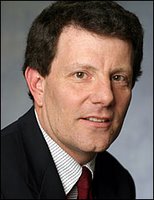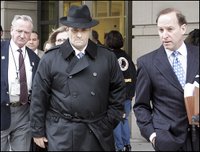Senate Groups From Both Parties Drop Regular Meetings with Lobbyists
From the Washington Post:
Republican and Democratic lawmakers are canceling their regularly scheduled meetings with lobbyists as the fallout from the Jack Abramoff scandal continues to roil Capitol Hill.
The Democratic Senatorial Campaign Committee said it has ended its biweekly meeting between congressional chiefs of staff and lobbyists, and the Senate Republican Conference suspended one of its regular lobbyist cattle calls as well. The changes come as leaders of both parties are stepping up their attacks on each other for being too close to lobbyists, and as they prepare tough legislation to rein in lobbyists' activities. Abramoff, who pleaded guilty to conspiring to bribe lawmakers and staff members, is cooperating with prosecutors in an investigation of congressional corruption.
Click here to read the full article.
--Tom Hayes



















